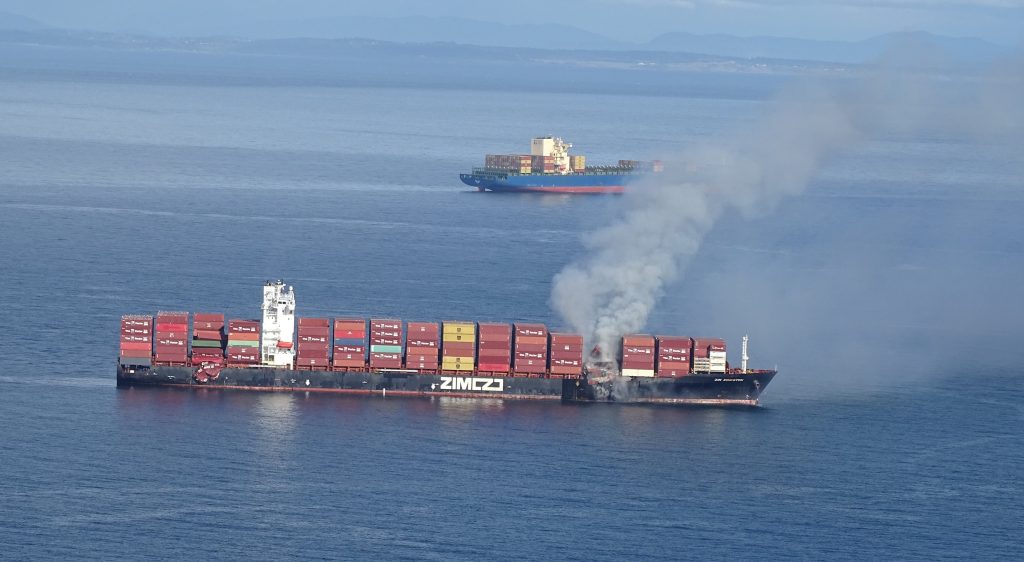On 1 October 2021, Zim declared a General Average incident in respect of the loss and damage sustained in the recent fire aboard the vessel near Victoria, BC.
What is General Average? An incident that threatens the vessel and voyage is a General Average incident. The principle of General Average is that everyone having an interest in the voyage – the shipowners and the cargo owners – should bear the cost of the salvage in proportionate share, rather than allowing the burden to fall disproportionately on those who lost cargo.
While the right to hold cargo liable for a General Average incident is reserved under carrier bill of lading terms, General Average is a principle of Maritime Law and does not need to be incorporated by contract.
How is the GA liability determined? The General Average Adjusters are responsible for determining the pro rata liability of the beneficial owners. Essentially, the cost of the salvage is divided by the total value of the vessel plus cargo, and this determines the pro rata share to be paid by the shipowners and the individual cargo interests. The Adjusters will require documentation to be submitted by cargo interests in accordance with the ship’s manifest, and any such documentation should be promptly provided to avoid additional delay in processing and release of cargo.
Cargo release against bond only. The adjusters will provide a preliminary figure and require the payment into bond of the appropriate pro rata share prior to authorizing release of cargo. Like freight and similar charges, there is a right of lien in the cargo for the GA liability, and the adjusters will not release cargo without payment to them of the required bond. It should be noted that the bond is an estimate of the GA liability, and cargo owners should not expect to receive any refund. It is also possible that there will be an additional bill when the GA is completed; if adjusters are doing their jobs well such an overage should be unlikely as well as very small.
Who is liable to bear the cost? The shipowner and cargo owners bear the cost of General Average. You need to keep your customers informed, and assist them in ensuring all required documentation is provided, but as freight forwarders are neither the shipowner nor the beneficial owner of any cargo, a Forwarder is not principally liable for the charges even when acting as NVOC. Again, communication with customers is key, so that when the adjusters assess the bond there is no unnecessary delay in arranging payment and securing release; as you know, detention and storage imposed on containers at port can cause a very rapid increase in liability in the cargo and so delay in taking delivery is to be avoided at all costs.
Will insurance respond? Generally speaking cargo insurers should respond to a general average incident and pay the bond and liability on the insured cargo owner’s behalf (subject to deductible and other terms). Your customers affected by the GA incident should immediately notify their insurers so as not to prejudice any right they may have to recover. Please note that when (or if) an insurer pays the customer on a cargo liability is a matter between your customers and their insurers, and your customers should not delay in paying the bond assessed by the adjusters and taking delivery of cargo regardless of how insurers respond.
Gavin Magrath, Magrath’s International Legal Counsel, Toronto, Canada


